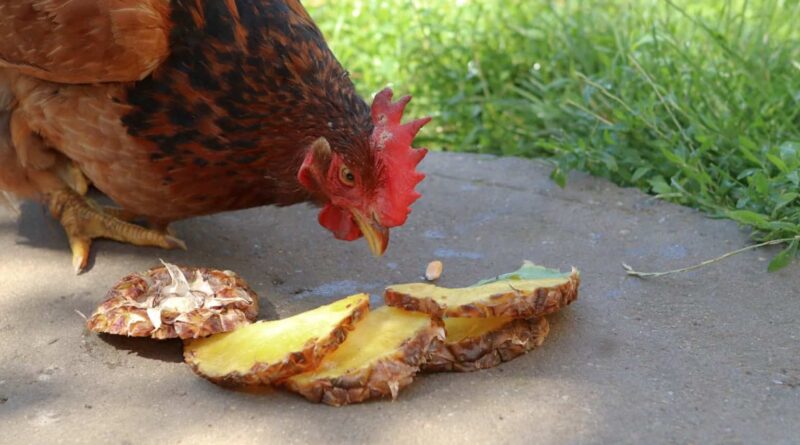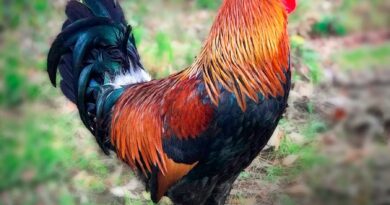Can Chickens Eat Pineapple? A Complete Guide to Safe Treats for Your Flock
Chickens are delightful creatures known for their hearty appetite and curious nature. As backyard poultry enthusiasts, we often wonder whether our feathered friends can safely enjoy certain human foods, such as pineapple. If you’ve ever asked, “Can chickens eat pineapple?” this guide is here to answer all your questions. We’ll explore the benefits, risks, and proper ways to introduce pineapple into your chickens’ diet while ensuring their overall health and happiness.
The Nutritional Value of Pineapple for Chickens
Pineapple is a tropical fruit rich in nutrients, including vitamins, minerals, and antioxidants. Here’s a closer look at its nutritional profile and how it can benefit chickens:
- Vitamin C: Although chickens produce their own vitamin C, an additional boost from pineapple can enhance their immune system.
- Vitamin B6: Helps in improving metabolic processes, supporting their energy needs.
- Fiber: Supports digestive health by promoting smooth bowel movements.
- Manganese: Aids in bone development and enzyme functions.
- Bromelain: This enzyme in pineapple helps in protein digestion.
While these nutrients are beneficial, it’s essential to ensure that pineapple is given in moderation to avoid any adverse effects.
Can Chickens Safely Eat Pineapple?
Yes, chickens can safely eat pineapple in small amounts. The fruit’s juicy texture and sweet taste make it a delightful treat for your flock. However, there are certain parts of the pineapple that should be avoided. For example:
- Safe Parts: The flesh of the pineapple is safe and nutritious for chickens.
- Parts to Avoid: The tough outer skin and the spiky crown are inedible and can pose choking hazards. Similarly, the core can be too fibrous and difficult for chickens to digest.
Always ensure that the pineapple is cut into manageable pieces to prevent choking or overconsumption.
Benefits of Feeding Pineapple to Chickens
Incorporating pineapple into your chickens’ diet can offer several health benefits. Here are some key advantages:
- Boosts Immunity: Pineapple’s vitamin C and antioxidants strengthen the immune system, helping chickens combat illnesses.
- Improves Digestion: The bromelain enzyme in pineapple aids in protein breakdown, making digestion easier.
- Promotes Hydration: With its high water content, pineapple helps keep chickens hydrated, especially during hot weather.
- Encourages Enrichment: Offering pineapple as a treat provides mental stimulation for your flock, as they peck and explore the new texture.
Risks of Feeding Pineapple to Chickens
While pineapple is generally safe for chickens, there are potential risks to consider:
High Sugar Content: Pineapple is naturally high in sugar, which can lead to obesity and other health issues if overfed.
- Acidity: The fruit’s acidity may cause digestive discomfort in some chickens, especially if they consume it in large quantities.
- Choking Hazards: Improperly prepared pineapple pieces can pose choking risks, particularly the core and skin.
- Allergic Reactions: Though rare, some chickens may exhibit sensitivity to pineapple. Always observe your flock after introducing any new food.
How to Prepare Pineapple for Your Chickens
To ensure the safety and enjoyment of your flock, proper preparation is key. Follow these steps to prepare pineapple for your chickens:
- Wash Thoroughly: Clean the pineapple to remove dirt and any pesticide residues.
- Peel the Skin: Remove the tough outer skin and discard the spiky crown.
- Remove the Core: While not toxic, the core can be too hard for chickens to digest.
- Cut Into Small Pieces: Dice the pineapple flesh into bite-sized chunks to make it easy for your chickens to eat.
- Serve Fresh: Offer the pineapple immediately after cutting to retain its freshness and nutrients.
How Much Pineapple Should Chickens Eat?
Moderation is crucial when feeding pineapple to chickens. As a general rule, treats like pineapple should comprise no more than 10% of their overall diet. A few small chunks per chicken once or twice a week is sufficient to provide nutritional benefits without causing harm.
Best Practices for Feeding Pineapple to Your Flock
To maximize the benefits and minimize the risks of feeding pineapple, follow these best practices:
- Introduce Gradually: When offering pineapple for the first time, start with a small amount and monitor your chickens for any adverse reactions.
- Combine with Other Foods: Mix pineapple with other fruits or vegetables to create a diverse treat platter.
- Avoid Overfeeding: Stick to the recommended serving size to prevent digestive upset.
- Provide Fresh Water: Always have fresh water available for your chickens, especially when feeding them sugary or acidic foods.
Alternative Fruits and Treats for Chickens
If pineapple isn’t readily available or if your chickens don’t seem to enjoy it, there are plenty of other fruits and treats you can offer:
- Fruits: Apples (without seeds), bananas, watermelon, and berries.
- Vegetables: Carrots, cucumbers, zucchini, and leafy greens.
- Grains: Cooked rice, oats, and corn.
- Protein Sources: Mealworms, cooked eggs, and small amounts of plain yogurt.
- Rotating these treats ensures a balanced diet and keeps your flock excited about their food.
Signs of Overfeeding or Food Intolerance
It’s important to observe your chickens for any signs of overfeeding or intolerance to pineapple.
Watch out for the following symptoms:
- Diarrhea: Excessive pineapple consumption may lead to watery droppings due to its high sugar content.
- Loss of Appetite: If chickens refuse their regular feed, it might indicate they’re eating too many treats.
- Lethargy: An unbalanced diet can lead to decreased energy levels.
If you notice any of these signs, reduce or eliminate pineapple from their diet and consult a veterinarian if the symptoms persist.
Can Chicks Eat Pineapple?
Chicks have delicate digestive systems and should not be given pineapple until they are at least 12 weeks old. Even then, introduce it sparingly and in tiny pieces. Focus on a balanced starter feed to meet their nutritional needs during their early development.
Frequently Asked Questions About Chickens and Pineapple
Can chickens eat canned pineapple?
Avoid canned pineapple as it often contains added sugar and preservatives, which are unhealthy for chickens.
Can chickens eat pineapple skin?
No, the tough skin can be a choking hazard and is not easily digestible.
Can pineapple prevent certain diseases in chickens?
While pineapple’s nutrients support overall health, it should not replace a balanced diet or medical care for disease prevention.
Do all chickens enjoy pineapple?
Preferences vary; some chickens may love pineapple, while others may not be interested.
Conclusion: A Sweet Treat for Your Flock
Pineapple can be a delicious and nutritious treat for your chickens when offered in moderation. By preparing it correctly and observing your flock’s reaction, you can safely incorporate this tropical fruit into their diet. Remember, the key to a healthy and happy flock is a well-balanced diet complemented by occasional treats like pineapple. Treat your feathered friends responsibly, and they’ll reward you with their clucks, eggs, and endearing antics




